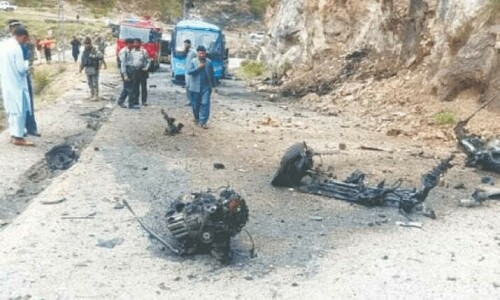IT is an impressive figure — 10,616 individuals arrested in 14,886 raids conducted across the country since Dec 24 under the National Action Plan.
Which only makes the mystery even bigger: with thousands upon thousands of individuals arrested in anti-terrorism raids, how come nothing has been heard from any of the arrested, their families or their lawyers?
Usually, when someone is detained and charged with crimes as in the anti-terror scheme of things, there is some statement by the arrested, a protest by family members perhaps or even a news conference by legal representatives.
Take a look: Over 10,000 arrested as National Action Plan against terror continues
But the interior ministry, which passed on the latest data to the Prime Minister’s Office which made them public on Friday, appears to have found 10,616 of the rarest of individuals in Pakistan: those who are amenable to being arrested and charged with presumably serious crimes without so much as even trying to go public with their side of the story.
There is of course a much more likely explanation. The arrested are overwhelmingly drawn from a pool of the usual suspects — militants and extremists who are used to being periodically arrested or detained and then, after a suitable pause and easily dodged legal troubles, simply cycle back to active duty.
There is no need for them to create a ruckus and they know the rules of this semi-formal game well enough to realise that there is no real danger of lengthy incarcerations or convictions that will stand on appeal.
The government may well challenge this notion. It has the easiest of routes available to it to do so — simply list the names of the individuals, state where they were arrested and by whom, name the groups they are alleged to be affiliated with and explain what crimes they are believed to have committed and are to be charged with.
Much as the government wants to be seen to be serious about implementing NAP, there are also pre-existing duties that it owes to the public, and even the individuals arrested.
Transparency and accountability are at the top of that list. The interior ministry’s various law-enforcement and intelligence arms are overwhelmingly operating in the country’s cities, towns and rural areas, not in Fata war zones where different rules apply.
The public has a right to know not just which extremist groups and militants are operating among the citizenry but also what the state is doing against individuals in the name of security. More transparency, please.
Published in Dawn, February 9th, 2015
On a mobile phone? Get the Dawn Mobile App: Apple Store | Google Play











































